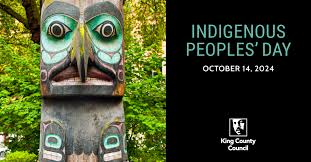Understanding Indigenous Peoples’ Day
Indigenous Peoples’ Day, observed annually on the second Monday of October in various regions, highlights the rich cultural heritage and enduring contributions of Indigenous peoples across the Americas. It stands as a significant reminder of the necessity for museums and cultural institutions to reflect on their role in representing Indigenous histories with respect, transparency, and ethical consideration.
This day emerged as a recognition of Indigenous experiences beyond the traditional narratives often presented in mainstream celebrations. It offers an opportunity to acknowledge historic injustices and to foster mutual understanding and respect among communities. Celebrations of Indigenous Peoples’ Day vary internationally, including formal recognition by several U.S. states and provinces in Canada, longstanding events such as Australia’s NAIDOC Week, and Brazil’s Dia dos Povos Indígenas.
Museums as Custodians of Indigenous Heritage
Museums hold a unique position as stewards of cultural heritage, tasked with not only conserving artifacts but also promoting truthful storytelling. For Indigenous communities, museums can either be places of honor or spaces of misrepresentation. This dual potential makes museological practices central to cultural dialogue and reconciliation efforts.
The Native American Graves Protection and Repatriation Act (NAGPRA)
In the United States, a landmark legal framework called the Native American Graves Protection and Repatriation Act (NAGPRA), enacted in 1990, shapes how museums interact with Indigenous cultural property. This legislation mandates the return of Native American human remains and sacred objects to appropriate Indigenous groups and establishes standards for respectful consultation and transparent inventory management.
| Key Provisions of NAGPRA | Beschrijving |
|---|---|
| Repatriation | Institutions with federal funding must return cultural items to affiliated tribes, restoring rightful ownership. |
| Consultation | Museums are required to work collaboratively with Indigenous communities when handling relevant artifacts. |
| Curation & Inventory | Maintaining detailed records of Indigenous collections ensures openness and accountability. |
Challenges in Museum Practices
Despite progress, museums face ongoing challenges related to Indigenous collections:
- Complex Cultural Affiliations: Displacements and historical disruptions make it difficult to determine rightful custodianship of certain artifacts.
- Representation and Interpretation: Museums must engage with Indigenous voices to co-curate exhibitions and offer accurate, culturally sensitive narratives.
- Ethical Stewardship: A growing movement encourages museums to see themselves as caretakers rather than owners of Indigenous heritage, prioritizing community needs.
- Healing and Reconciliation: Museums play a vital role in supporting dialogue and acknowledging past wrongs to build respectful, collaborative relationships.
Steps Forward for Museums on Indigenous Peoples’ Day
The observance serves as a call for action among museum professionals and stakeholders to adopt more inclusive and responsible practices:
- Education and Awareness: Hosting events that highlight Indigenous perspectives fosters understanding within museum staff and the broader public.
- Betrokkenheid bij de gemeenschap: Building meaningful partnerships with local Indigenous groups encourages shared governance of cultural presentations.
- Policy Reflection: Reexamining internal policies related to Indigenous collections and repatriation helps identify areas for improvement.
- Advocacy for Indigenous Rights: Museums are increasingly supporting initiatives that promote cultural preservation and justice.
The Impact of This Movement
As museums embrace these principles, they contribute to a richer, more authentic portrayal of Indigenous histories and cultures. This transformation aligns with broader trends in tourism and cultural heritage, where travelers seek meaningful, respectful experiences. Museums that evolve responsibly play a fundamental role in promoting intercultural dialogue and understanding.
Linking Cultural Stewardship to Travel and Transportation
For those visiting cities or heritage sites that commemorate Indigenous histories, transportation and transfer services become part of the journey. Platforms like GetTransfer.com offer travelers the advantage of choosing vehicles and drivers familiar with local cultural contexts, ensuring that the journey to cultural destinations is conducted with respect and reliability. Knowing the precise vehicle, driver ratings, and transparent fare options in advance adds a layer of trust and comfort to any cultural exploration.
Samenvatting en slotopmerkingen
Indigenous Peoples’ Day highlights an essential moment for museums to deepen their ethical commitments to Indigenous communities. With laws such as NAGPRA setting legal expectations, and cultural conversations evolving toward partnership and respect, museums shape how history and heritage are shared worldwide.
Recognizing challenges from cultural affiliation complexities to the interpretation of Indigenous artifacts calls for a continuous willingness to learn and adapt. Museums that engage with Indigenous peoples as collaborators and co-curators help create environments where cultural truths can flourish.
Ultimately, museums have the potential to foster healing and to celebrate Indigenous cultures in ways that are just, educational, and empowering—a goal resonating not only in museology but also throughout the travel and tourism sectors.
Embracing Trust and Choice in Transportation
While best reviews and genuine feedback are invaluable, nothing beats firsthand experience. On GetTransfer.com, users can book cars with professional drivers from verified providers at reasonable prices, allowing travelers to make decisions based on convenience, affordability, and an extensive selection of vehicles and options. This transparency and ease align perfectly with the values of respect and clarity championed by Indigenous commemorations.
Boek je rit GetTransfer.com
Looking Ahead: The Broader Impact on Travel
The ongoing evolution in honoring Indigenous Peoples’ Day, while not drastically altering the global tourism map, is undeniably relevant for how destinations represent culture and heritage. GetTransfer remains dedicated to staying current with global developments, supporting travelers who seek respectful and informed journeys. Start planning your next adventure and secure your worldwide transfer with GetTransfer.


Reacties